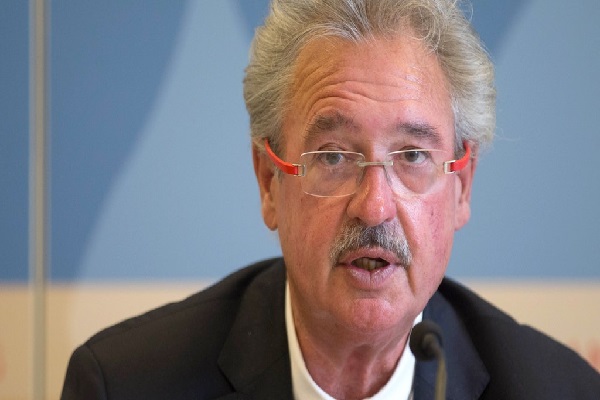
Luxembourg Minister of Immigration and Asylum Jean Asselborn has released a statement on the Report on the Reception Conditions of Applicants and Recipients of International Protection in Luxembourg of the Consultative Commission on Human Rights of the Grand Duchy of Luxembourg (CCDH).
Following the press release of 28 November 2018, Jean Asselborn wished to correct a series of points raised by the CCDH. Firstly, the minister recalled that medical examinations aimed at determining the age of an applicant for international protection are carried out according to the applicable ethical rules, with respect for the dignity of the person and without touching them. It is not a medical examination using instruments, but only a visual inspection - in no case are the genitals measured or photographed (with the exception of a photo portrait of the face-torso). The minister has thus described such examinations as brief and non-intrusive, as well as necessary as the only scientific and reliable way for authorities to determine the age of people who are unable to proof this, and to ensure children and adults are separated. Moreover, these medical examinations are carried out only in case of serious doubt.
Secondly, in terms of reception, the CCDH questioned the equality of treatment between the residents of the accommodation structures through the use of "reward" vouchers". In response, Asselborn has underlined that in no case can the physical conditions of reception be removed in their entirety and that health care is guaranteed at all times. The granting of material aid, which include vouchers related to health and personal hygiene, is a right of anyone applying for protection. In addition, extraordinary aid may be granted at any time to vulnerable persons with special needs.
Concerning criticism of the stability of accommodation, generally there is no transfer from a sustainable hosting structure. The only exceptions are transfers for reasons of academic or professional training, for reasons of health or very serious conflicts. Any decision to transfer takes into account the safety of all inhabitants, as well as social and behavioural considerations, the family unit and above all the best interests of the child, according to the minister. Likewise, the latter rejected the CCDH's criticism of the need to obtain prior authorisation from the OLAI regarding access to accommodation facilities. However, Asselborn recalled that the reception facilities are private residential places in which the OLAI wishes to guarantee the right to privacy and the protection of the persons sheltered under its responsibility.
The Minister of Immigration and Asylum similarly rejected complaints that there is no specific internal procedure for identifying vulnerable persons and that identification is done by private partners. Here he noted that detection of signs of vulnerability, trauma and/or harassment is carried out from the beginning of care. Exchanges between the OLAI and the Immigration Directorate's focal point on vulnerability also take place from the very beginning of the application for international protection, whilst supervising staff receive training on human trafficking, female genital mutilation and LGBTI identities.
Jean Asselborn has, however, noted criticisms of promiscuity and lack of autonomy in the accommodation structures. He assured that any new construction of sustainable accommodation structure will have kitchen spaces to give residents the opportunity to prepare their meals, but admitted that access to the social grocery stores ("Cent Buttek") could not be retained after consultation of the parties concerned. This was due to the operating system being independent of the network of the existing social grocery store. Finally, the minister reaffirmed that many measures have been put in place and every effort will be made to ensure the conformity of the accommodation structures for asylum seekers, the reception of people in dignified conditions and respect for privacy.








